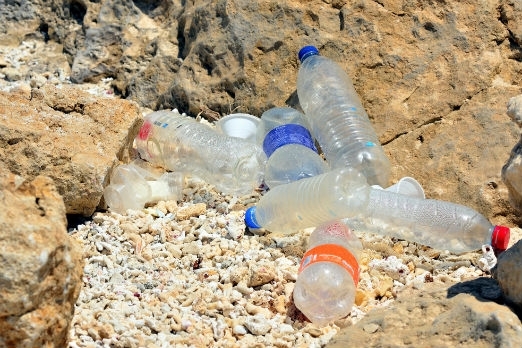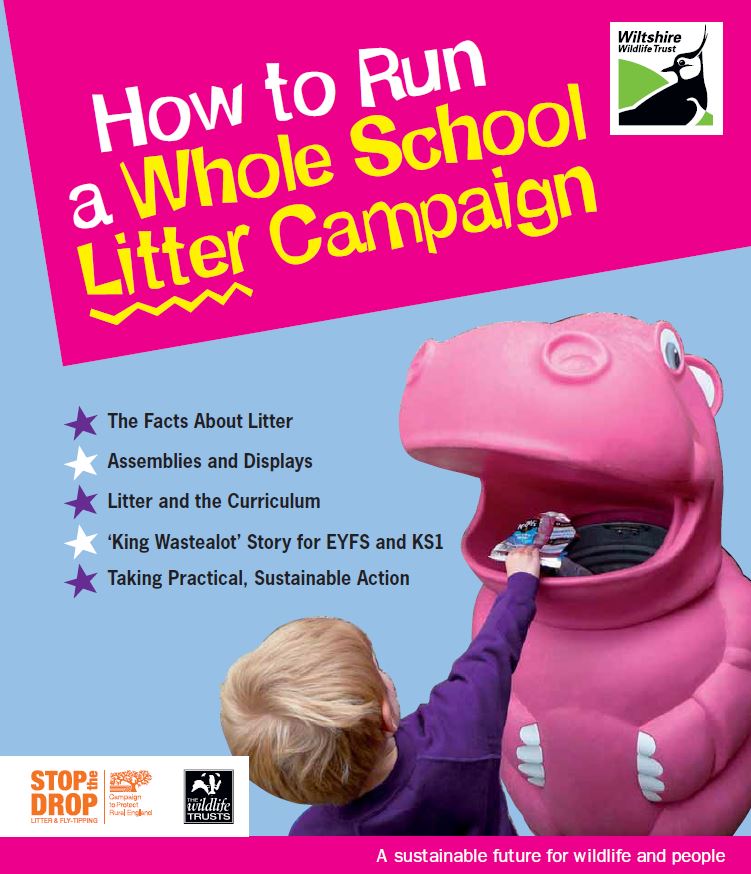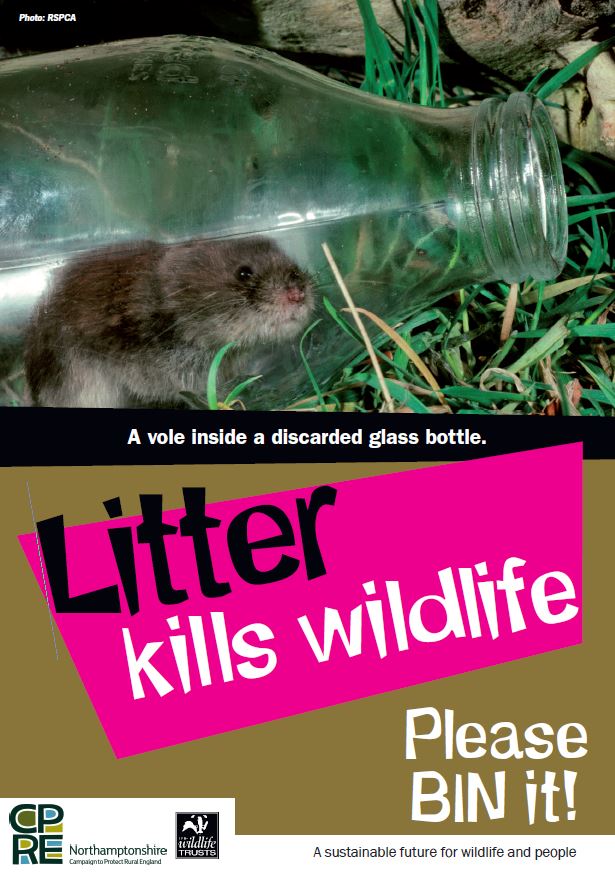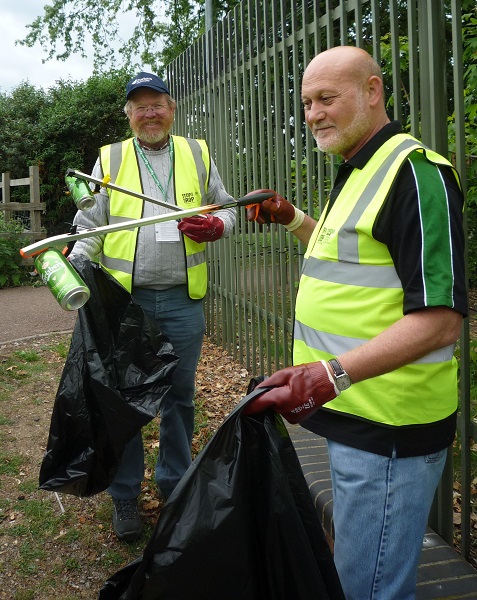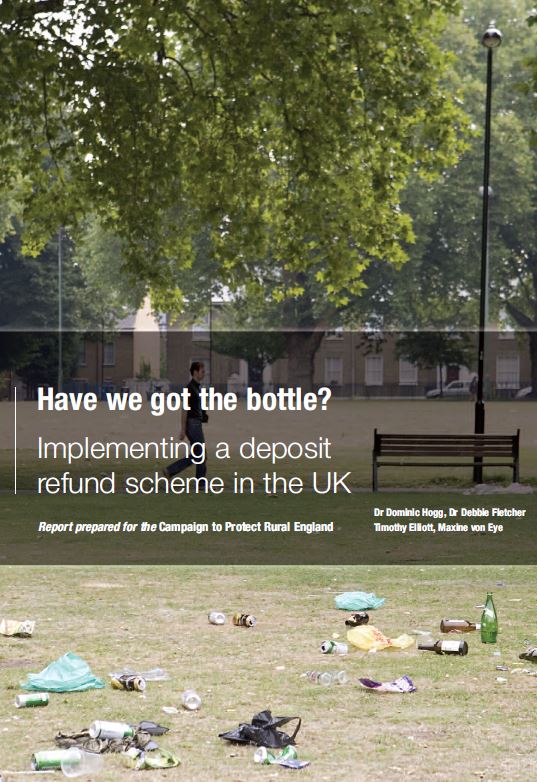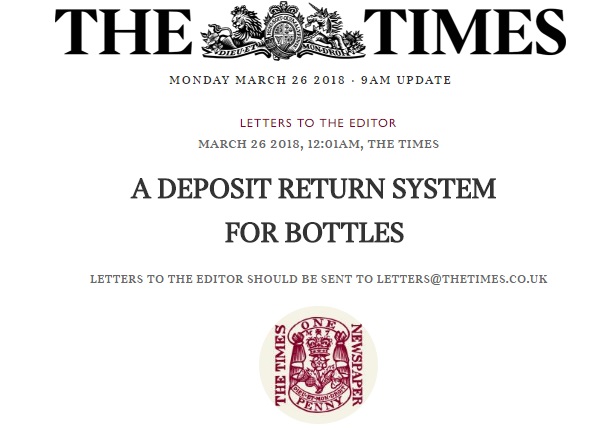A look back at CPRE's successful 10-year campaign against drinks container litter
2008 - Reopening the debate
April
Over 25 years after the defeat of the Beverage Container Bill closed the deposits debate for a generation, CPRE's President Bill Bryson launches our Stop the Drop campaign, including a call for 'a nationwide deposit system for drinks containers to boost recycling and reduce litter.’
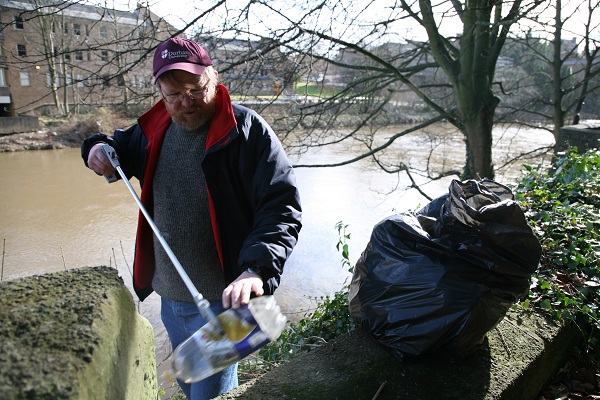
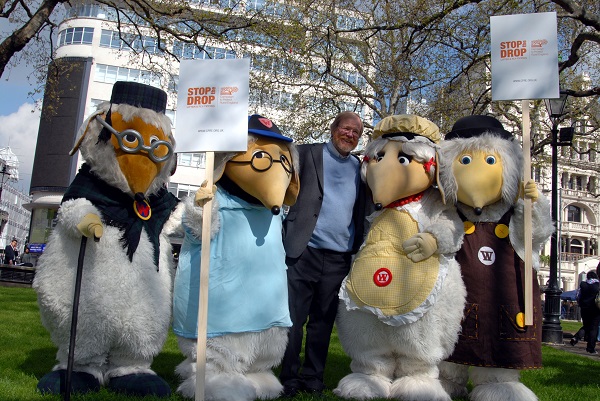
Bill Bryson clearing plastic bottles in Durham, shortly before launching Stop the Drop with The Wombles.
November
CPRE and the Wiltshire Wildlife Trust publish a litter education pack for primary schools, highlighting the longevity of littered bottles and the danger they present to wildlife on land and sea.
December
A poll commissioned by CPRE demonstrates overwhelming public support for the return of bottle deposit systems. 80% of those polled by Ipsos MORI say they would support a scheme where a refundable 10p deposit was included in the price of every drink container. Nine out of 10 people in favour of the scheme also think the deposit would have an impact on reducing litter dropped on the street. Bill Bryson says: 'Now is the time for Defra's new ministers to implement a scheme that would be both right and popular'.
2009 - Learning from experience
A Policy Exchange report commissioned by CPRE - Litterbugs: how to deal with the problem of littering - calls for the introduction of a national deposit scheme properly linked into broader waste and recycling policy. Bill Bryson's foreword says: ‘Ten or so US states operate similar systems, as do South Australia and European countries such as Germany, Denmark and Sweden. All report significantly increased recycling rates. Surely a no-brainer, then, to introduce a similar system in the UK.’
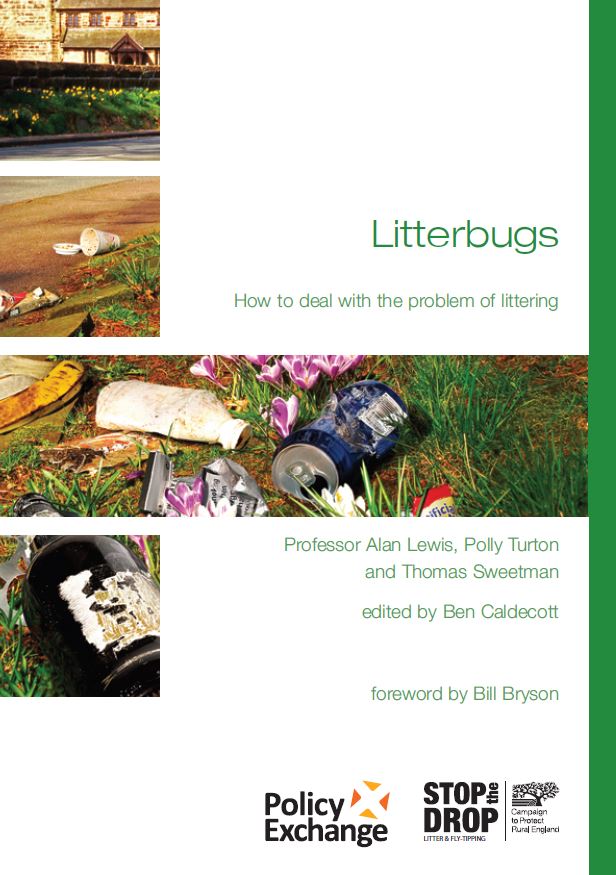
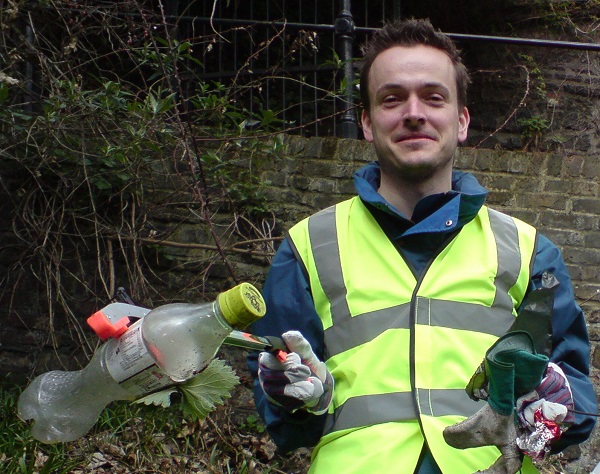
We commissioned new research after joining in with the British Waterways Towpath Tidy in March.
2010 - Providing practical evidence
David Cameron pledges to look into CPRE’s proposals for a deposit return system (DRS) after being asked about CPRE’s September research report at Prime Minister’s Questions. The report, Have we got the bottle?, commissioned from waste consultants Eunomia, was the first comprehensive cost-benefit analysis of how DRS could work in the UK. It clearly demonstrated that such a scheme would cost little to set up, would generate revenue to support most of its own running costs and would generate return rates of around 90%. The research showed how the scheme would help the Government achieve a ‘zero waste’ economy by increasing recycling rates, and reducing litter, while reducing costs to the public sector by £160 million per year (or £7 per household).
Earlier that summer, Bill Bryson and CPRE Northamptonshire joined Carlsberg UK executives (below) to clean up the banks of the River Nene in Northampton and urge consumers to dispose of their cans responsibly.
2011 - Highlighting social benefits
March
CPRE research shows that DRS has the potential to raise upwards of £432 million each year for local charities and community initiatives, from donated deposits. An Ipsos MORI survey for CPRE also found that 53% of people surveyed were supportive of a 15p deposit on 500ml drinks containers, with only 30 per cent opposed.
July
After criticising the Government's June review of waste policy for failing to support a deposit scheme, CPRE publishes a new research report, From Waste to Work, showing that the introduction of DRS the UK could create between 3,000 and 4,300 full-time jobs. The findings were launched by waste consultants Eunomia at the TUC Climate Change Conference, where their General Secretary Brendan Barber said that DRS could ‘provide skilled employment for those currently without work and helping the UK to shift across to a low-carbon economy.’
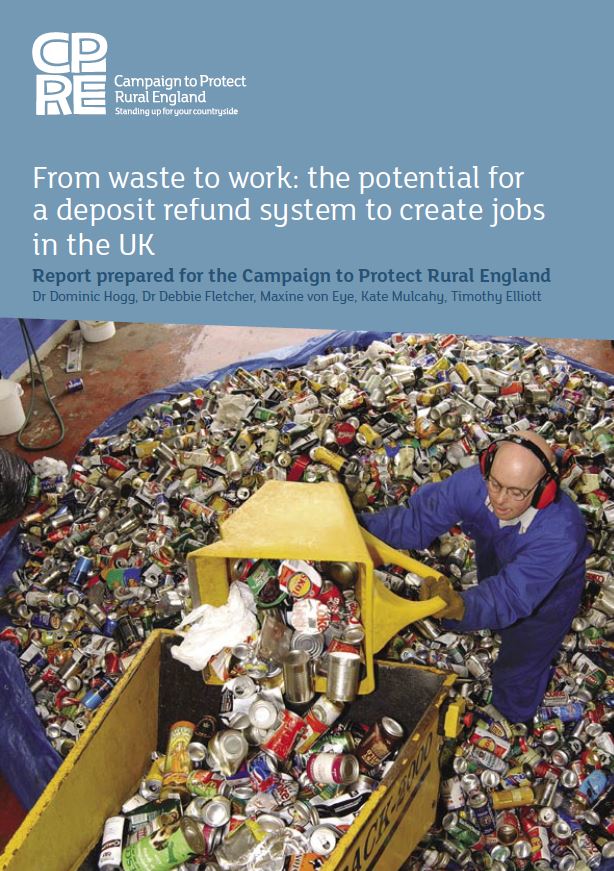
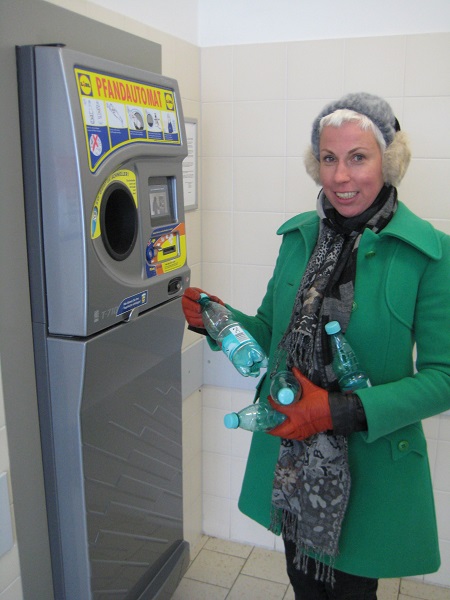
After showing how DRS could create green jobs, we highlighted the success of European schemes.
2013 - Building a movement
July
CPRE coordinates the launch of the UK Deposit Alliance at the British Library, where speakers from across Europe highlighted how DRS increases recycling revenue and quality, creates jobs and eradicates litter. The event unveiled results from a comprehensive pilot project in Catalonia, preliminary findings from eight pilot projects in Scotland, and evidence of the success of the scheme in Germany after 10 years in operation.
2015 - Increasing public support
May
The Association for the Protection of Rural Scotland publishes polling showing nearly 80% of the Scottish public would support a deposit return system. In September, they launch the Have You Got the Bottle? campaign for a Scottish DRS, wholeheartedly supported by CPRE. The following month Scotland’s Environment Secretary, Richard Lochhead, calls on his Westminster counterpart, Liz Truss, to introduce a UK-wide scheme.
October
A 5p charge on plastic bags comes into force after a three-year campaign led by CPRE, as part of the Break the Bag Habit coalition, to help raise awareness of plastic litter. As well as reducing the number of plastic bags handed out by over 7 billion in its first six months (leading to a long-term reduction of 80%), the popularity of the charge helped add weight to other financial incentives to reduce waste, with public support for the charge rising to 70% by May 2016.
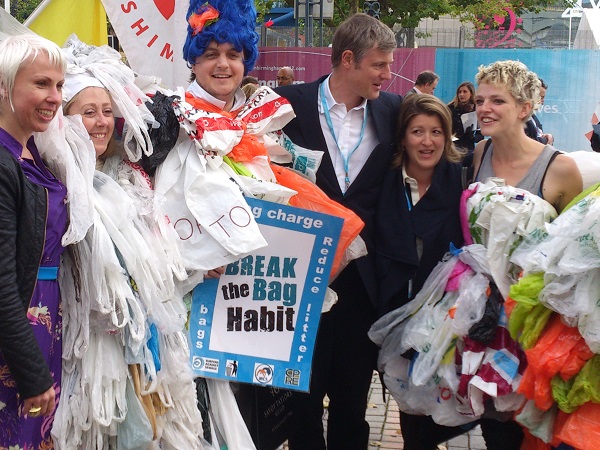
CPRE campaigners urge Zac Goldsmith MP to Break the Bag Habit at the 2012 Conservative conference.
2016 - A passionate new advocate
June
In her maiden speech as CPRE President, Emma Bridgewater says: ‘I want to throw my weight behind the CPRE litter campaign, by emphasising the huge plastic waste generated by water bottles. It is clear that deposit return systems have worked effectively in other countries, so I believe that governments in the UK should introduce deposit return schemes for bottles, and cans, as soon as possible.’
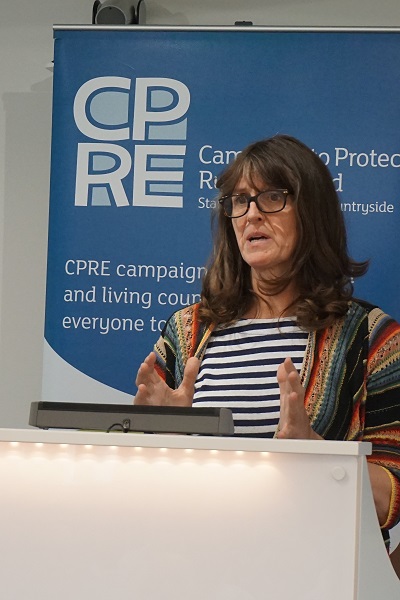
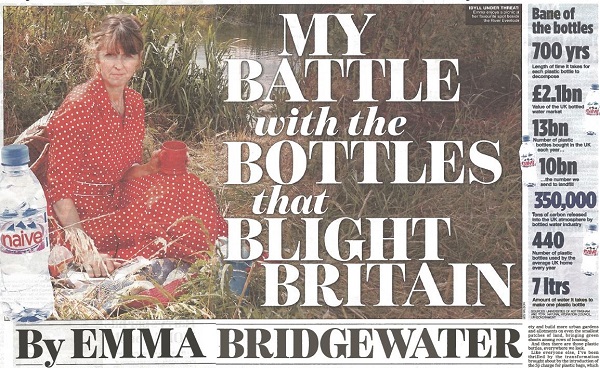
In August, Emma uses a Mail on Sunday interview to reiterate her call for DRS, revealing ‘a pet hate of mine – discarded plastic bottles, whether in hedgerows or bobbing in ponds and lakes. Ten billion plastic bottles are thrown away every year, littering streets and polluting pristine landscapes alike. I want to see this tide of plastic driven back.’
October
Emma Bridgewater appears on BBC Breakfast to make the case for a deposit return system, and is filmed visiting a bottle recycling plant. The previous month, research from Cardiff University had showed that that 90% of shoppers were taking their own bags shopping, suggesting genuine behavioural change and the potential for a financial incentive on drinks containers. Professor Wouter Poortinga said the research ‘suggests that other similar policies could be successfully implemented, such as a deposit return scheme on plastic bottles’.
2017 - Unstoppable momentum
January
CPRE welcomes the launch of the Sky News #OceanRescue campaign against single-use plastics. Richard Branson uses the platform to argue that a deposit return scheme is ‘a fantastic idea, and one that should be encouraged.’ Also speaking on a deposit return system, The Prince of Wales told Sky News that ‘it always seems extraordinary to me we don’t take these sorts of initiatives which can make a dramatic difference.’ The following month, CPRE commends the decision of waste giant Suez UK to come out in favour of deposit return systems, and Coca-Cola's announcement of a change its global position in deciding to support DRS in Scotland.
April
With support from CPRE, the UK Government launches a National Litter Strategy including a pledge to investigate deposit return systems. CPRE was a leading member of Defra’s Litter Strategy Advisory Group and successfully proposed the creation of a Voluntary and Economic Incentives Working Group, providing the secretariat for that group from October 2017 until February 2018.
September
CPRE welcomes the Scottish Government’s announcement that it will introduce DRS. Samantha Harding comments: ‘This is a momentous step towards a cleaner environment, whether countryside, beach or high street. Deposit return systems are easy to use and recapture valuable materials. There is little doubt the system will prove a triumph in Scotland, and it paves the way for the rest of the UK.’
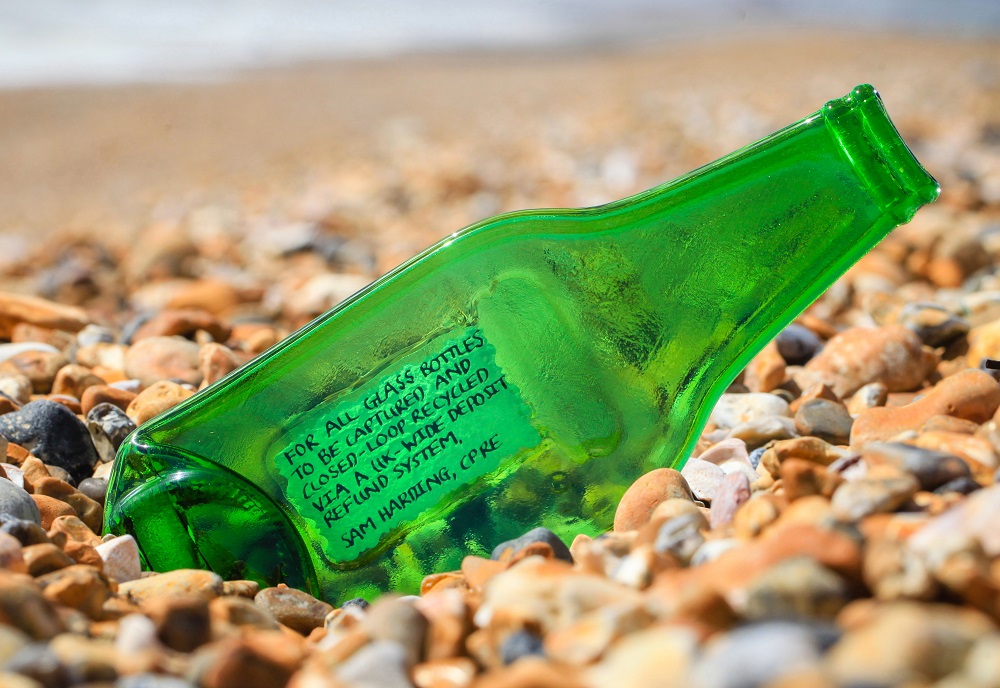
Our wish in bottle © Brighton Togs
October
CPRE is part of a consortium of organisations who publish research showing that DRS could save local authorities across England a combined total of £35m a year. At the Conservative Party Conference, Environment Secretary Michael Gove says: ‘we are looking to go further to reduce plastic waste by working with industry to see how we could introduce a deposit return scheme for plastic bottles.’
December
After receiving written and oral evidence from CPRE and others, the Environmental Audit Committee recommends that the UK Government should introduce a deposit return scheme for plastic bottles, to help increase recycling and curb the devastation caused by plastic waste.
2018 - Time for action
January
The Times reports that the Voluntary and Economic Incentives Working Group is to tell ministers that ‘a deposit return scheme would result in far higher recovery of used bottles and cans as well as reducing litter and improving the quality of material sent for recycling.’ Roseanna Cunningham, the Environment Secretary in Scotland, tells a conference of business and environmental leaders that DRS ‘has a vital role to play in protecting our environment … I urge Michael Gove to join us in this important endeavour.’
February
Writing that the UK could adopt Norway’s DRS, the BBC’s environment analyst Roger Harrabin notes that CPRE’s Samantha Harding has been campaigning on the issue for more than a decade. He reports that Samantha ‘applauded the Norwegian system of putting racks round bins in public places for discarded plastic bottles’ and told him that ‘one great advantage of deposit return schemes is that it obliges each part of the plastic chain to change their behaviour - from product concept to design; to manufacture; transport; use; and finally disposal.’
Samantha then appears on the BBC’s Victoria Derbyshire programme urging the UK Government and Welsh Assembly to ‘follow the Scottish Government in going ahead with a full system for every can and bottle’, before being quoted in The Times in response to attempts by the packaging industry to avoid DRS by increasing their contributions to recycling costs: ‘The industry is trying to fool Mr Gove into not supporting a deposit scheme by offering a relatively small amount of money that will have nothing like as much impact on recycling and litter.’
26 March
CPRE President Emma Bridgewater co-signs a letter to The Times with her predecessors Andrew Motion, Max Hastings, Jonathan Dimbleby and David Puttnam, urging Michael Gove to announce a mandatory deposit return system for all bottles and cans or risk allowing the UK to ‘become “the dirty man of Europe” once more.’ In a major article for the i newspaper, Emma argues ‘the comprehensive deposit system we have worked so hard for, for so long, must become a reality. Michael Gove has the opportunity to make a landmark decision and change England’s environmental footprint forever.’
28 March
Success! The Government announces that ‘a deposit return scheme to increase recycling rates and slash the amount of waste polluting our land and seas will be introduced subject to consultation later this year’. As CPRE had demanded, the scheme is set to include all single use drinks containers, whether plastic, glass or metal.
